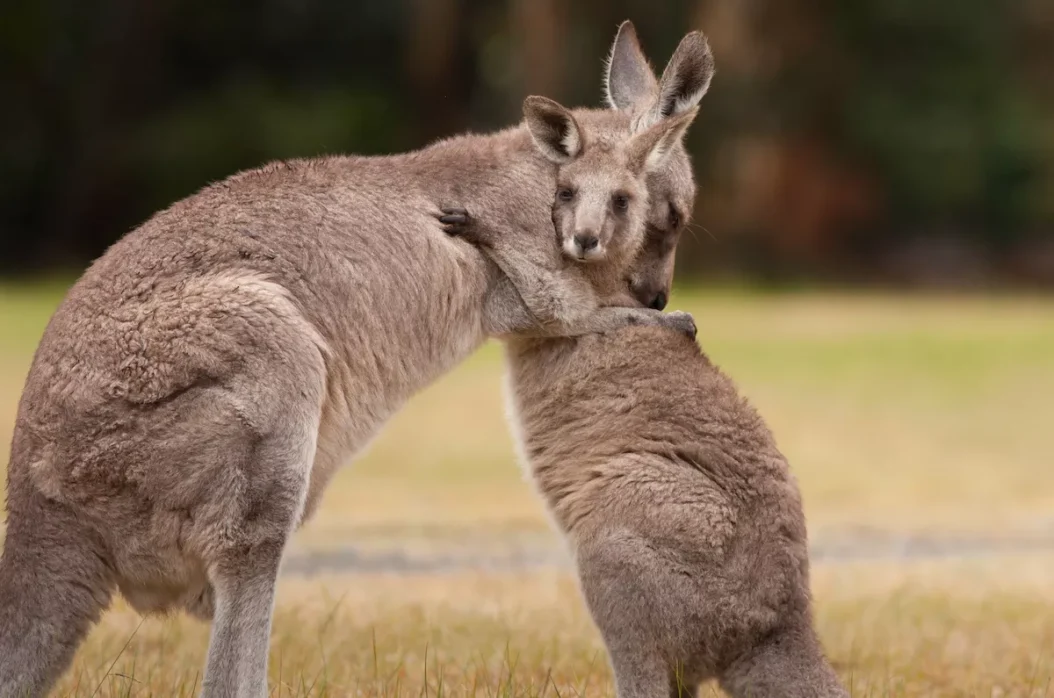Press Release


- For Immediate Release:
- Contact:
- Scott Beckstead, director of campaigns
- 541-530-3460
- Email Scott here
Animal Wellness Groups Applaud Introduction of Measure to Ban Sale of Kangaroo Parts, Products in Nike’s Home State
Bill aims to halt largest commercial slaughter of native wildlife in the world for soccer cleats.
Nike and other footwear manufacturers are responsible for driving the nighttime shoots that kill up to 2 million kangaroos a year, just so the companies can use the skins for soccer cleats.

“It’s unconscionable that millions of native wild animals in Australia have been killed for the sake of high-end soccer cleats worn by a subset of elite soccer players,” said Prozanski, who chairs the Senate Judiciary Committee. “I understand this legislation may have financial impact on some Oregon shoe manufacturers, but in the balance Oregon should be standing on the humane side of this issue. There are other materials that can be used in making these high-end cleats.”
The vast majority of soccer players, including professional players, wear cleats made from synthetic materials, with kangaroo-skin (or “k-leather” as it is called by manufacturers) comprising just a small fraction of the soccer-cleat market.
The bill is similar to a law in California that bans any sale of kangaroo products.
“Nike and other shoe companies know that synthetic shoes sell far better than kangaroo-based shoes, but the companies persist in offering these shoes and at the same time tout their supposed animal-welfare and environmentally friendly policies,” said Scott Beckstead, who lives in Sutherlin, Ore., and is director of campaigns for the Center for a Humane Economy and Animal Wellness Action. “Commercial exploitation of the killing of millions of kangaroos, including joeys in their mothers’ pouches, is wasteful, inhumane, and a breach of the values of most Oregonians.”
Beckstead noted that in 2016, Oregon voters by overwhelming margins passed Measure 100, which outlawed the trade in endangered animal parts and products. Beckstead said the new bill “aligns neatly with that wildlife-trade-related ballot measure.”
“It’s time for these shoe manufacturers to evolve their business model to eliminate extreme animal cruelty in their product offerings,” said René Tatro, a board member of the Center for a Humane Economy who has long been active in Oregon on wildlife protection issues. “We commend Sen. Prozanski for introducing the bill and hope Oregon lawmakers will take swift action to pass it into law.”
So far, lawmakers in Connecticut and New Jersey have introduced similar legislation to stop the trade in kangaroos. In the last Congress (just concluded), U.S. Representatives Salud Carbajal, D-Calif., and Brian Fitzpatrick, R-Pa., introduced national legislation to ban any trade in kangaroo parts in the U.S.
The organizations are referring to the new Oregon legislation, SB 764, as the No Inhumane Kangaroo Exploitation Act, or the NIKE Act.
The Center for a Humane Economy (“the Center”) is a non-profit organization that focuses on influencing the conduct of corporations to forge a humane economic order. The first organization of its kind in the animal protection movement, the Center encourages businesses to honor their social responsibilities in a culture where consumers, investors, and other key stakeholders abhor cruelty and the degradation of the environment and embrace innovation as a means of eliminating both.
Animal Wellness Action (Action) is a Washington, D.C.-based 501(c)(4) organization with a mission of helping animals by promoting legal standards forbidding cruelty. We champion causes that alleviate the suffering of companion animals, farm animals, and wildlife. We advocate for policies to stop dogfighting and cockfighting and other forms of malicious cruelty and to confront factory farming and other systemic forms of animal exploitation. To prevent cruelty, we promote enacting good public policies and we work to enforce those policies. To enact good laws, we must elect good lawmakers, and that’s why we remind voters which candidates care about our issues and which ones don’t. We believe helping animals helps us all.